Front Axle
Rear Axle
Composite Axle
Drive Axle
Steering Axle
Passenger Cars
Light Commercial Vehicles
Heavy Commercial Vehicles
Buses
Two Wheelers
Front Wheel Drive
Rear Wheel Drive
All Wheel Drive
Steel
Aluminum
Composite
North America
Europe
South America
Asia Pacific
Middle East and Africa
North America Outlook (USD Billion, 2019-2032)
North America Automotive Axle Market by Type
Front Axle
Rear Axle
Composite Axle
Drive Axle
Steering Axle
North America Automotive Axle Market by Vehicle Type
Passenger Cars
Light Commercial Vehicles
Heavy Commercial Vehicles
Buses
Two Wheelers
North America Automotive Axle Market by Vehicle Drive Type
Front Wheel Drive
Rear Wheel Drive
All Wheel Drive
North America Automotive Axle Market by Material Type
Steel
Aluminum
Composite
North America Automotive Axle Market by Regional Type
US
Canada
US Outlook (USD Billion, 2019-2032)
US Automotive Axle Market by Type
Front Axle
Rear Axle
Composite Axle
Drive Axle
Steering Axle
US Automotive Axle Market by Vehicle Type
Passenger Cars
Light Commercial Vehicles
Heavy Commercial Vehicles
Buses
Two Wheelers
US Automotive Axle Market by Vehicle Drive Type
Front Wheel Drive
Rear Wheel Drive
All Wheel Drive
US Automotive Axle Market by Material Type
Steel
Aluminum
Composite
CANADA Outlook (USD Billion, 2019-2032)
CANADA Automotive Axle Market by Type
Front Axle
Rear Axle
Composite Axle
Drive Axle
Steering Axle
CANADA Automotive Axle Market by Vehicle Type
Passenger Cars
Light Commercial Vehicles
Heavy Commercial Vehicles
Buses
Two Wheelers
CANADA Automotive Axle Market by Vehicle Drive Type
Front Wheel Drive
Rear Wheel Drive
All Wheel Drive
CANADA Automotive Axle Market by Material Type
Steel
Aluminum
Composite
Europe Outlook (USD Billion, 2019-2032)
Europe Automotive Axle Market by Type
Front Axle
Rear Axle
Composite Axle
Drive Axle
Steering Axle
Europe Automotive Axle Market by Vehicle Type
Passenger Cars
Light Commercial Vehicles
Heavy Commercial Vehicles
Buses
Two Wheelers
Europe Automotive Axle Market by Vehicle Drive Type
Front Wheel Drive
Rear Wheel Drive
All Wheel Drive
Europe Automotive Axle Market by Material Type
Steel
Aluminum
Composite
Europe Automotive Axle Market by Regional Type
Germany
UK
France
Russia
Italy
Spain
Rest of Europe
GERMANY Outlook (USD Billion, 2019-2032)
GERMANY Automotive Axle Market by Type
Front Axle
Rear Axle
Composite Axle
Drive Axle
Steering Axle
GERMANY Automotive Axle Market by Vehicle Type
Passenger Cars
Light Commercial Vehicles
Heavy Commercial Vehicles
Buses
Two Wheelers
GERMANY Automotive Axle Market by Vehicle Drive Type
Front Wheel Drive
Rear Wheel Drive
All Wheel Drive
GERMANY Automotive Axle Market by Material Type
Steel
Aluminum
Composite
UK Outlook (USD Billion, 2019-2032)
UK Automotive Axle Market by Type
Front Axle
Rear Axle
Composite Axle
Drive Axle
Steering Axle
UK Automotive Axle Market by Vehicle Type
Passenger Cars
Light Commercial Vehicles
Heavy Commercial Vehicles
Buses
Two Wheelers
UK Automotive Axle Market by Vehicle Drive Type
Front Wheel Drive
Rear Wheel Drive
All Wheel Drive
UK Automotive Axle Market by Material Type
Steel
Aluminum
Composite
FRANCE Outlook (USD Billion, 2019-2032)
FRANCE Automotive Axle Market by Type
Front Axle
Rear Axle
Composite Axle
Drive Axle
Steering Axle
FRANCE Automotive Axle Market by Vehicle Type
Passenger Cars
Light Commercial Vehicles
Heavy Commercial Vehicles
Buses
Two Wheelers
FRANCE Automotive Axle Market by Vehicle Drive Type
Front Wheel Drive
Rear Wheel Drive
All Wheel Drive
FRANCE Automotive Axle Market by Material Type
Steel
Aluminum
Composite
RUSSIA Outlook (USD Billion, 2019-2032)
RUSSIA Automotive Axle Market by Type
Front Axle
Rear Axle
Composite Axle
Drive Axle
Steering Axle
RUSSIA Automotive Axle Market by Vehicle Type
Passenger Cars
Light Commercial Vehicles
Heavy Commercial Vehicles
Buses
Two Wheelers
RUSSIA Automotive Axle Market by Vehicle Drive Type
Front Wheel Drive
Rear Wheel Drive
All Wheel Drive
RUSSIA Automotive Axle Market by Material Type
Steel
Aluminum
Composite
ITALY Outlook (USD Billion, 2019-2032)
ITALY Automotive Axle Market by Type
Front Axle
Rear Axle
Composite Axle
Drive Axle
Steering Axle
ITALY Automotive Axle Market by Vehicle Type
Passenger Cars
Light Commercial Vehicles
Heavy Commercial Vehicles
Buses
Two Wheelers
ITALY Automotive Axle Market by Vehicle Drive Type
Front Wheel Drive
Rear Wheel Drive
All Wheel Drive
ITALY Automotive Axle Market by Material Type
Steel
Aluminum
Composite
SPAIN Outlook (USD Billion, 2019-2032)
SPAIN Automotive Axle Market by Type
Front Axle
Rear Axle
Composite Axle
Drive Axle
Steering Axle
SPAIN Automotive Axle Market by Vehicle Type
Passenger Cars
Light Commercial Vehicles
Heavy Commercial Vehicles
Buses
Two Wheelers
SPAIN Automotive Axle Market by Vehicle Drive Type
Front Wheel Drive
Rear Wheel Drive
All Wheel Drive
SPAIN Automotive Axle Market by Material Type
Steel
Aluminum
Composite
REST OF EUROPE Outlook (USD Billion, 2019-2032)
REST OF EUROPE Automotive Axle Market by Type
Front Axle
Rear Axle
Composite Axle
Drive Axle
Steering Axle
REST OF EUROPE Automotive Axle Market by Vehicle Type
Passenger Cars
Light Commercial Vehicles
Heavy Commercial Vehicles
Buses
Two Wheelers
REST OF EUROPE Automotive Axle Market by Vehicle Drive Type
Front Wheel Drive
Rear Wheel Drive
All Wheel Drive
REST OF EUROPE Automotive Axle Market by Material Type
Steel
Aluminum
Composite
APAC Outlook (USD Billion, 2019-2032)
APAC Automotive Axle Market by Type
Front Axle
Rear Axle
Composite Axle
Drive Axle
Steering Axle
APAC Automotive Axle Market by Vehicle Type
Passenger Cars
Light Commercial Vehicles
Heavy Commercial Vehicles
Buses
Two Wheelers
APAC Automotive Axle Market by Vehicle Drive Type
Front Wheel Drive
Rear Wheel Drive
All Wheel Drive
APAC Automotive Axle Market by Material Type
Steel
Aluminum
Composite
APAC Automotive Axle Market by Regional Type
China
India
Japan
South Korea
Malaysia
Thailand
Indonesia
Rest of APAC
CHINA Outlook (USD Billion, 2019-2032)
CHINA Automotive Axle Market by Type
Front Axle
Rear Axle
Composite Axle
Drive Axle
Steering Axle
CHINA Automotive Axle Market by Vehicle Type
Passenger Cars
Light Commercial Vehicles
Heavy Commercial Vehicles
Buses
Two Wheelers
CHINA Automotive Axle Market by Vehicle Drive Type
Front Wheel Drive
Rear Wheel Drive
All Wheel Drive
CHINA Automotive Axle Market by Material Type
Steel
Aluminum
Composite
INDIA Outlook (USD Billion, 2019-2032)
INDIA Automotive Axle Market by Type
Front Axle
Rear Axle
Composite Axle
Drive Axle
Steering Axle
INDIA Automotive Axle Market by Vehicle Type
Passenger Cars
Light Commercial Vehicles
Heavy Commercial Vehicles
Buses
Two Wheelers
INDIA Automotive Axle Market by Vehicle Drive Type
Front Wheel Drive
Rear Wheel Drive
All Wheel Drive
INDIA Automotive Axle Market by Material Type
Steel
Aluminum
Composite
JAPAN Outlook (USD Billion, 2019-2032)
JAPAN Automotive Axle Market by Type
Front Axle
Rear Axle
Composite Axle
Drive Axle
Steering Axle
JAPAN Automotive Axle Market by Vehicle Type
Passenger Cars
Light Commercial Vehicles
Heavy Commercial Vehicles
Buses
Two Wheelers
JAPAN Automotive Axle Market by Vehicle Drive Type
Front Wheel Drive
Rear Wheel Drive
All Wheel Drive
JAPAN Automotive Axle Market by Material Type
Steel
Aluminum
Composite
SOUTH KOREA Outlook (USD Billion, 2019-2032)
SOUTH KOREA Automotive Axle Market by Type
Front Axle
Rear Axle
Composite Axle
Drive Axle
Steering Axle
SOUTH KOREA Automotive Axle Market by Vehicle Type
Passenger Cars
Light Commercial Vehicles
Heavy Commercial Vehicles
Buses
Two Wheelers
SOUTH KOREA Automotive Axle Market by Vehicle Drive Type
Front Wheel Drive
Rear Wheel Drive
All Wheel Drive
SOUTH KOREA Automotive Axle Market by Material Type
Steel
Aluminum
Composite
MALAYSIA Outlook (USD Billion, 2019-2032)
MALAYSIA Automotive Axle Market by Type
Front Axle
Rear Axle
Composite Axle
Drive Axle
Steering Axle
MALAYSIA Automotive Axle Market by Vehicle Type
Passenger Cars
Light Commercial Vehicles
Heavy Commercial Vehicles
Buses
Two Wheelers
MALAYSIA Automotive Axle Market by Vehicle Drive Type
Front Wheel Drive
Rear Wheel Drive
All Wheel Drive
MALAYSIA Automotive Axle Market by Material Type
Steel
Aluminum
Composite
THAILAND Outlook (USD Billion, 2019-2032)
THAILAND Automotive Axle Market by Type
Front Axle
Rear Axle
Composite Axle
Drive Axle
Steering Axle
THAILAND Automotive Axle Market by Vehicle Type
Passenger Cars
Light Commercial Vehicles
Heavy Commercial Vehicles
Buses
Two Wheelers
THAILAND Automotive Axle Market by Vehicle Drive Type
Front Wheel Drive
Rear Wheel Drive
All Wheel Drive
THAILAND Automotive Axle Market by Material Type
Steel
Aluminum
Composite
INDONESIA Outlook (USD Billion, 2019-2032)
INDONESIA Automotive Axle Market by Type
Front Axle
Rear Axle
Composite Axle
Drive Axle
Steering Axle
INDONESIA Automotive Axle Market by Vehicle Type
Passenger Cars
Light Commercial Vehicles
Heavy Commercial Vehicles
Buses
Two Wheelers
INDONESIA Automotive Axle Market by Vehicle Drive Type
Front Wheel Drive
Rear Wheel Drive
All Wheel Drive
INDONESIA Automotive Axle Market by Material Type
Steel
Aluminum
Composite
REST OF APAC Outlook (USD Billion, 2019-2032)
REST OF APAC Automotive Axle Market by Type
Front Axle
Rear Axle
Composite Axle
Drive Axle
Steering Axle
REST OF APAC Automotive Axle Market by Vehicle Type
Passenger Cars
Light Commercial Vehicles
Heavy Commercial Vehicles
Buses
Two Wheelers
REST OF APAC Automotive Axle Market by Vehicle Drive Type
Front Wheel Drive
Rear Wheel Drive
All Wheel Drive
REST OF APAC Automotive Axle Market by Material Type
Steel
Aluminum
Composite
South America Outlook (USD Billion, 2019-2032)
South America Automotive Axle Market by Type
Front Axle
Rear Axle
Composite Axle
Drive Axle
Steering Axle
South America Automotive Axle Market by Vehicle Type
Passenger Cars
Light Commercial Vehicles
Heavy Commercial Vehicles
Buses
Two Wheelers
South America Automotive Axle Market by Vehicle Drive Type
Front Wheel Drive
Rear Wheel Drive
All Wheel Drive
South America Automotive Axle Market by Material Type
Steel
Aluminum
Composite
South America Automotive Axle Market by Regional Type
Brazil
Mexico
Argentina
Rest of South America
BRAZIL Outlook (USD Billion, 2019-2032)
BRAZIL Automotive Axle Market by Type
Front Axle
Rear Axle
Composite Axle
Drive Axle
Steering Axle
BRAZIL Automotive Axle Market by Vehicle Type
Passenger Cars
Light Commercial Vehicles
Heavy Commercial Vehicles
Buses
Two Wheelers
BRAZIL Automotive Axle Market by Vehicle Drive Type
Front Wheel Drive
Rear Wheel Drive
All Wheel Drive
BRAZIL Automotive Axle Market by Material Type
Steel
Aluminum
Composite
MEXICO Outlook (USD Billion, 2019-2032)
MEXICO Automotive Axle Market by Type
Front Axle
Rear Axle
Composite Axle
Drive Axle
Steering Axle
MEXICO Automotive Axle Market by Vehicle Type
Passenger Cars
Light Commercial Vehicles
Heavy Commercial Vehicles
Buses
Two Wheelers
MEXICO Automotive Axle Market by Vehicle Drive Type
Front Wheel Drive
Rear Wheel Drive
All Wheel Drive
MEXICO Automotive Axle Market by Material Type
Steel
Aluminum
Composite
ARGENTINA Outlook (USD Billion, 2019-2032)
ARGENTINA Automotive Axle Market by Type
Front Axle
Rear Axle
Composite Axle
Drive Axle
Steering Axle
ARGENTINA Automotive Axle Market by Vehicle Type
Passenger Cars
Light Commercial Vehicles
Heavy Commercial Vehicles
Buses
Two Wheelers
ARGENTINA Automotive Axle Market by Vehicle Drive Type
Front Wheel Drive
Rear Wheel Drive
All Wheel Drive
ARGENTINA Automotive Axle Market by Material Type
Steel
Aluminum
Composite
REST OF SOUTH AMERICA Outlook (USD Billion, 2019-2032)
REST OF SOUTH AMERICA Automotive Axle Market by Type
Front Axle
Rear Axle
Composite Axle
Drive Axle
Steering Axle
REST OF SOUTH AMERICA Automotive Axle Market by Vehicle Type
Passenger Cars
Light Commercial Vehicles
Heavy Commercial Vehicles
Buses
Two Wheelers
REST OF SOUTH AMERICA Automotive Axle Market by Vehicle Drive Type
Front Wheel Drive
Rear Wheel Drive
All Wheel Drive
REST OF SOUTH AMERICA Automotive Axle Market by Material Type
Steel
Aluminum
Composite
MEA Outlook (USD Billion, 2019-2032)
MEA Automotive Axle Market by Type
Front Axle
Rear Axle
Composite Axle
Drive Axle
Steering Axle
MEA Automotive Axle Market by Vehicle Type
Passenger Cars
Light Commercial Vehicles
Heavy Commercial Vehicles
Buses
Two Wheelers
MEA Automotive Axle Market by Vehicle Drive Type
Front Wheel Drive
Rear Wheel Drive
All Wheel Drive
MEA Automotive Axle Market by Material Type
Steel
Aluminum
Composite
MEA Automotive Axle Market by Regional Type
GCC Countries
South Africa
Rest of MEA
GCC COUNTRIES Outlook (USD Billion, 2019-2032)
GCC COUNTRIES Automotive Axle Market by Type
Front Axle
Rear Axle
Composite Axle
Drive Axle
Steering Axle
GCC COUNTRIES Automotive Axle Market by Vehicle Type
Passenger Cars
Light Commercial Vehicles
Heavy Commercial Vehicles
Buses
Two Wheelers
GCC COUNTRIES Automotive Axle Market by Vehicle Drive Type
Front Wheel Drive
Rear Wheel Drive
All Wheel Drive
GCC COUNTRIES Automotive Axle Market by Material Type
Steel
Aluminum
Composite
SOUTH AFRICA Outlook (USD Billion, 2019-2032)
SOUTH AFRICA Automotive Axle Market by Type
Front Axle
Rear Axle
Composite Axle
Drive Axle
Steering Axle
SOUTH AFRICA Automotive Axle Market by Vehicle Type
Passenger Cars
Light Commercial Vehicles
Heavy Commercial Vehicles
Buses
Two Wheelers
SOUTH AFRICA Automotive Axle Market by Vehicle Drive Type
Front Wheel Drive
Rear Wheel Drive
All Wheel Drive
SOUTH AFRICA Automotive Axle Market by Material Type
Steel
Aluminum
Composite
REST OF MEA Outlook (USD Billion, 2019-2032)
REST OF MEA Automotive Axle Market by Type
Front Axle
Rear Axle
Composite Axle
Drive Axle
Steering Axle
REST OF MEA Automotive Axle Market by Vehicle Type
Passenger Cars
Light Commercial Vehicles
Heavy Commercial Vehicles
Buses
Two Wheelers
REST OF MEA Automotive Axle Market by Vehicle Drive Type
Front Wheel Drive
Rear Wheel Drive
All Wheel Drive
REST OF MEA Automotive Axle Market by Material Type
Steel
Aluminum
Composite
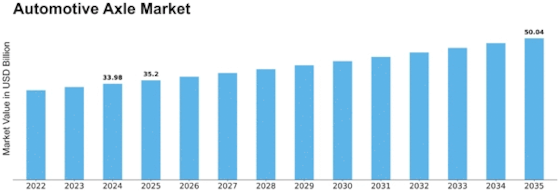


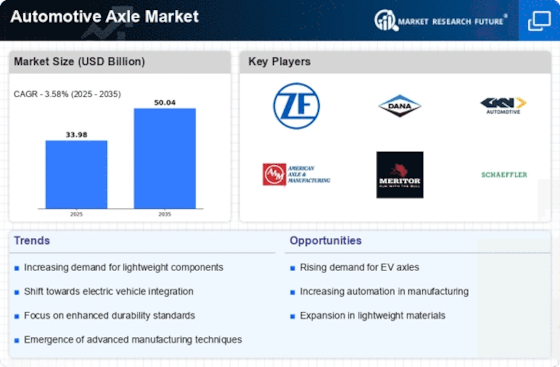
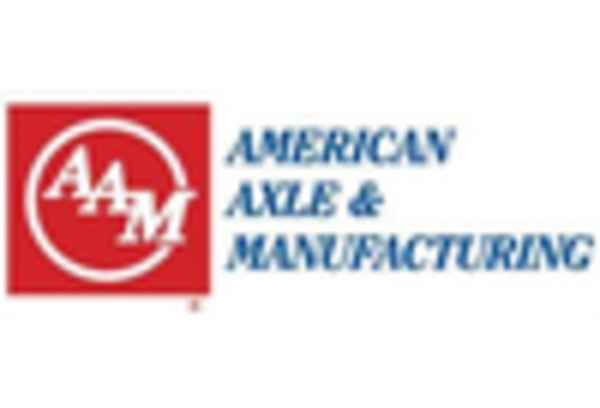
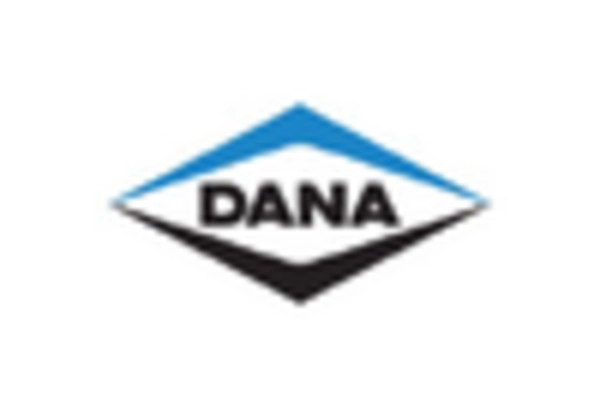
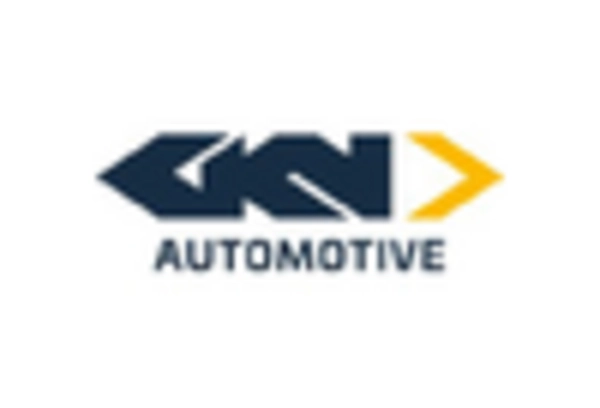
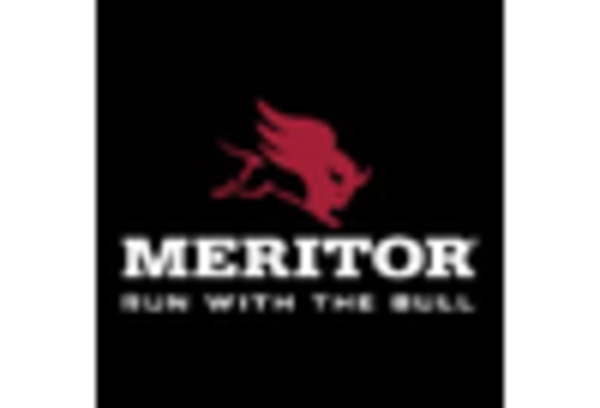
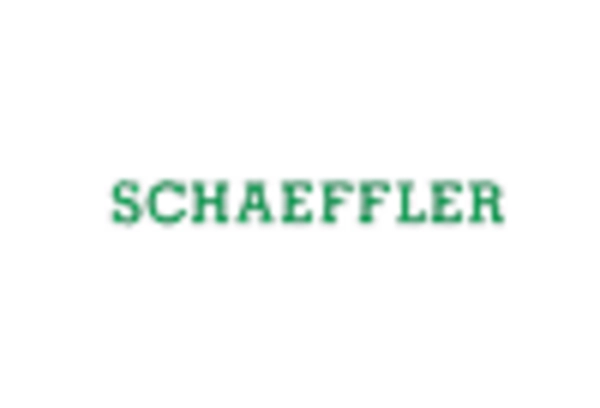
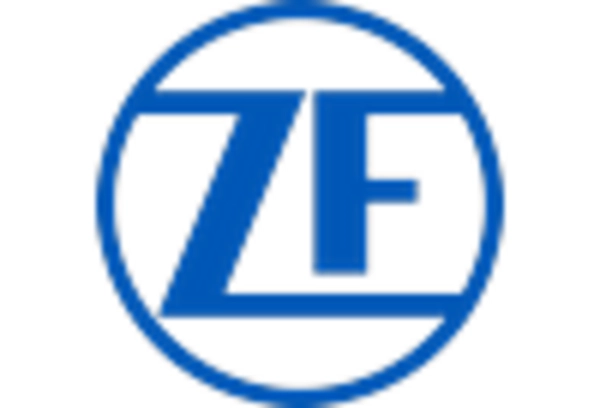









Leave a Comment